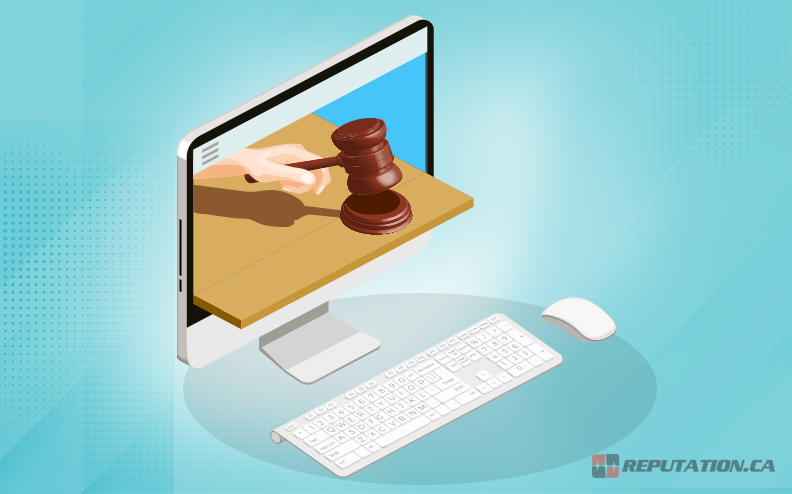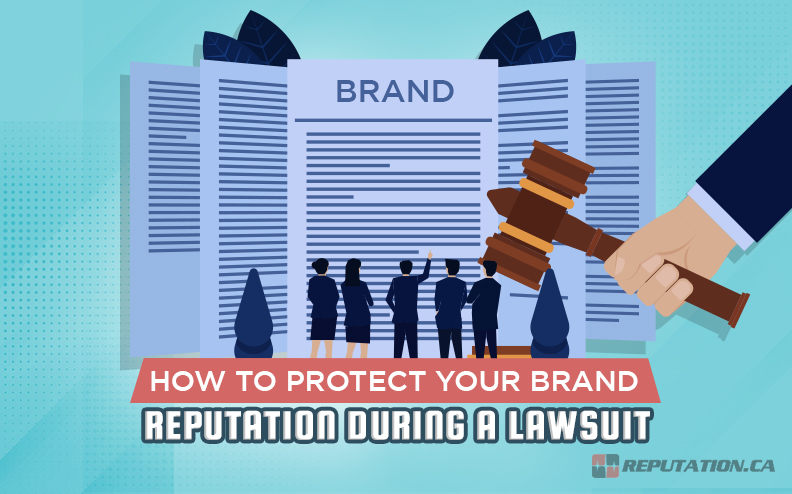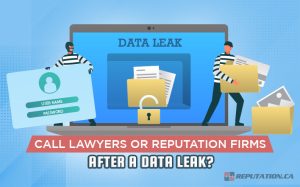When you get sued, it can destroy everything you’ve built over the years in just a few weeks if you don’t take care of it. Most business owners don’t know just how fast it can happen. As soon as someone files a lawsuit against you, your reputation enters dangerous territory. Every court document ends up as a permanent Google search result, and any social media post about it can turn into something that spreads like wildfire.
These legal fights changed how people saw these businesses for years after everything ended in court. The way people see your company changes during these legal cases, not after they’re done. Your customers make up their minds based on what they see in the news and read on social media, not what’s actually said in court. If you manage a lawsuit the wrong way, it can wipe out years and years of trust you’ve built with your customers. But if you manage it well, you can actually come out of it with your brand even stronger than it was before.
Let’s get started – there is plenty to talk about here.
How Legal Cases Damage Your Reputation
The legal discovery process can expose some of your most embarrassing internal communications to the world. These court filings stay permanently in Google search results. That online footprint sticks around forever. You can’t just make them disappear after the case ends.
Some industries have it worse than others. Pharmaceutical businesses know that product liability cases mean every single email about side effects gets examined closely. Tech firms face the same problems when privacy disputes come up. The public already expects these businesses to make mistakes.
These industries face extra problems when legal cases hit. Their executives go through congressional hearings while their stock prices tank. Government regulators start asking harder questions about oversight. Customers lose trust in brands they once thought were reliable.

Social media makes everything spread like crazy. Just one court document gets posted online, and suddenly, thousands of people are commenting and sharing their opinions. The story spreads faster than your legal team can even respond. Most sites spread the drama within hours.
Here’s where it gets tough – what your lawyers want and what your reputation needs don’t always match up. Your legal team wants to fight hard and defend aggressively. At the same time, your PR team is trying to control the damage and keep everything quiet.
Internal fights use up resources while outside pressure keeps growing. Different departments start working against one another instead of working together to solve the crisis. Top executives get pulled in different directions by different advice. The company’s response becomes scattered instead of organized.
The timeline makes everything worse. Court cases drag on for months or years while your reputation takes hit after hit. Every new court document brings fresh headlines. You can’t just wait until the case ends to start fixing the damage.
Protect Your Business Before Legal Action
When you’re aware that legal problems are headed your way, the work you do up front can really save your reputation. Plenty of businesses don’t understand that legal cases turn into public records, which means anyone can go through all your business information after the court papers get filed.
Your competitors are going to look through every single document after the litigation gets started. They’ll study all your pricing strategies, your supplier relationships, and all your internal communications. This kind of exposure goes way past the original dispute, and it can really hurt the partnerships that you’ve spent years putting together.
First, you need to lock down all your private information before it turns into a problem. You want to make sure that every employee and vendor sign confidentiality agreements that cover the whole dispute period – most people have no idea how much they share when they’re just talking casually. This keeps your trade secrets from accidentally slipping out in casual conversations or meetings.

Protective orders work best when you request them right at the beginning of the process. Courts prefer it when businesses can show real reasons to worry about competitive harm instead of just wanting general privacy. Your legal team needs to have specific examples of how releasing this information would damage your market position.
Businesses that know what they’re doing also run internal audits before filing legal cases or responding to them. You need to go through all your contracts and partnerships to find any weak points that the other side’s lawyers might try to use against you – it’s much better to find these problems now instead of in the middle of depositions. This process helps you build stronger arguments while preventing unexpected attacks on your business practices.
Where you file your case matters a lot when you have a choice. Some jurisdictions have judges who understand complex business disputes better than others. You might also find courts that let you file more documents under seal when you need to protect private information without making it look like you’re trying to hide something.
Handle Your Communication During Legal Cases
Once your lawsuit starts, you’ll need to watch what people are saying about your company online. You should keep an eye on these conversations as they happen because that’s the best way to stop bad stories from spiraling out of control. Social media moves very fast, and false information tends to spread even faster than the truth. Just one tweet can reach thousands of people before lunchtime.
The problem you’ll run into is that not every negative comment needs a response from you. You’ll need to learn how to tell the difference between real customer complaints and attacks that could be coming from your competitors. This takes some practice to get right, and you’ll sometimes need to dig around to find out who’s behind some posts.
To tell the difference between real criticism and planned attacks, you’ll need to look at the patterns and timing closely. If you get this wrong, it can hurt your reputation. If you respond to every troll, you’ll waste tons of time and money. But if you ignore real problems, you’ll turn off your customers.

Your employees can be unpredictable during this time. They’ll want to defend the company, which is natural. But they might accidentally share information that could hurt your legal case. You need to tell them exactly what they can and can’t say in public. Try to keep them updated enough that they feel included without giving them too much information that they become a liability. Their natural enthusiasm can work against you in these situations.
The question of how transparent to be is one of the hardest parts. If you say too much, you give the other side information they can use against you. If you say too little, people will assume you’re hiding something pretty bad. You can look at how Boeing handled their 737 MAX crisis to see a perfect example of how the wrong communication decisions can make legal problems even worse.
This balancing act comes into play with every public statement you make. Your lawyers will want you to stay completely quiet, while your PR team wants you to explain everything in detail. If you make the wrong choice here, you can turn something manageable into a PR nightmare that lasts longer than the lawsuit itself.
When you do need to correct false information, the best way is to fix it quietly and directly. You shouldn’t repeat the false claim in your correction because that just spreads it around even more. Just tell people what happened. Most people will skip over the fine print anyway.
Other Ways to Handle Your Business Disputes
When disputes come up between businesses, many of them now choose to stay out of public courtrooms completely. This approach helps keep private information out of the headlines and keeps your brand safe from the kind of attention you really don’t want. Amazon has made this pretty popular because they ask most of their customers and business partners to go through arbitration instead of taking cases to court.
The whole process works because arbitration takes place behind closed doors. When you use arbitration, all your business matters stay private between the people involved. Your competitors can’t get their hands on any of the details, and reporters can’t write stories about whatever legal problems you might be dealing with. This privacy means a lot more than keeping bad stories out of the news. All your internal plans and strategies stay secret, and your team can spend their time working on answers instead of trying to handle public relations problems.

Look at how Verizon and AT&T dealt with their “5G” advertising fight. They went through the National Advertising Division instead of going to court with legal battles. This process helped them solve their disagreement without either company getting bad press coverage. Both companies came out looking professional because the public never got to see the messy details.
Speed is also important when you’re trying to keep your image clean. Uber was able to settle some big problems about driver classification through arbitration, and they did it much faster than if they’d gone through regular court cases. Because they solved it quickly, there was less time for bad stories to spread around and hurt their brand.
Mediation can work even better than arbitration when you’re dealing with business relationships that need to continue. If two businesses need one another for future deals, mediation helps them work out their problems without ruining the relationship. Court battles usually turn people into enemies, while mediation helps everyone come to an agreement. Business partnerships thrive when everyone involved feels like they’re being heard during the negotiation process. The deals you make in the future will depend on everyone maintaining professional respect for one another, even when you disagree on something.
Businesses that do business internationally run into extra problems with foreign courts that might not treat them fairly. Arbitration gives everyone neutral ground where both sides can feel confident about how the process is handled and the outcome.
Build Your Brand Defense Strategy
When your company gets sued, you need a strong plan to protect your reputation. The best way forward is bringing together real-time tracking with teams from different departments who can respond immediately to any threats.
Your reputation can go downhill in just a few hours if you don’t do anything about it. Your brand value drops with every negative headline that sits out there without a response. If you act fast, you can minimize both the financial losses and the legal fees.
You should set up tracking systems that use AI to spot problems across the internet. These tools can catch negative coverage or false information before it spreads too far – and the timing here is important. You should set up automatic alerts so your team knows immediately when something needs their attention.

Your response team needs to have people from IT, marketing, legal, and compliance. Everyone has something different to bring to the table, and you’re going to need all of them to put together a strong response. Your legal team knows the ins and outs of the case, while your marketing team knows how to talk to your customers.
Whether you keep control or watch everything spiral out of control depends on how well these different departments work together. Each department will see problems that the others might miss. Your marketing team protects your relationships with customers while your legal team deals with the regulatory problems.
You need to decide early on if you’re going to respond publicly or keep everything private. If the lawsuit has lots of technical details that most people won’t understand, you might want to stay quiet and let your lawyers take care of everything. But if false rumors start spreading on social media, you’ll need to come out publicly with the facts. What you choose here will shape everything else you do.
How you spend your money during this time really matters. You have to balance expensive reputation management services against your legal defense budget. Sometimes, it makes more sense to put most of your money into your legal strategy. But in other cases, you’ll need to put more into PR. If you’re an international company, you’ll face even more problems because you have to keep an eye on multiple regions at the same time. In some markets where competitors can file lawsuits first, you need to be extra careful so they don’t use your legal problems against you. Plus, every region has its own media environment that works differently.
Take Control of Your Online Reputation
When you need to protect your reputation during legal problems, you’re juggling several different pieces at once. Most executives don’t realize how many areas this covers. Now, with everyone connected online, every court filing and legal document can spread across the internet in just a few minutes. This makes everything much more serious than it used to be. What used to stay inside courtrooms now becomes public conversations on social media, news websites, and industry forums.
Businesses that think ahead can turn their legal problems into opportunities to strengthen their reputation. They talk to their stakeholders before problems get worse. They show they’re responsible through real actions. And they come out looking more reliable to their customers and partners.

Nobody can promise you’ll have perfect protection when legal problems happen. The businesses that do best are the ones that start planning to protect their reputation before they run into any legal problems. You want to be prepared, not scrambling to respond when something happens. Say you run into legal problems – they can become opportunities to show the world what your company stands for, how honest you are, and how well you can recover from tough times.
You can take control of your online reputation with Canada’s leading experts in handling reviews, social media, public relations, and crisis response. If you’re dealing with cancel culture or building a stronger presence online, we’re here to help. Contact us at Reputation.ca now for expert advice that’s designed specifically for what you need!







